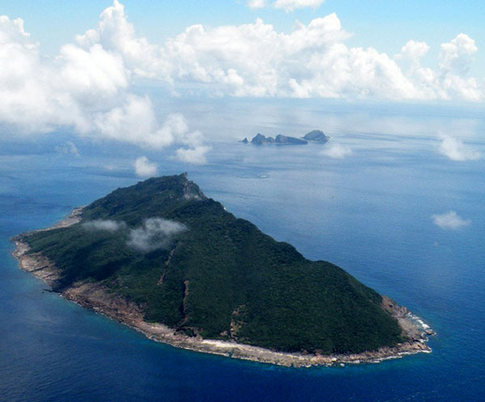People's Daily implies economic measures against Japan
 0 Comment(s)
0 Comment(s) Print
Print E-mail Xinhua, September 18, 2012
E-mail Xinhua, September 18, 2012
 |
|
The Diaoyu Islands. [File photo] |
"Would Japan rather lose another 10 years, or even be prepared to fall back 20 years?" asked the article under the byline of Hua Yiwen. China is Japan's biggest trading partner.
Given the interdependency of the two countries, economic punishments would be a "double-edged sword" for China, who in principle opposes sanctions to solve international disputes and has been cautious in using them, the article said.
But for issues concerning its territorial sovereignty, China will meet head-on if the Japanese government continues its defiance, the commentary said.
Accusing Japan's "purchase" of the Diaoyu Islands in the East China Sea of no difference than "stealing," the article said it is consistent with international laws for China to use all sorts of levers to uphold sovereignty.
The commentary said Japan's economy lacks immunity to China's economic measures. It cited that the survival of the economy, which saw two lost decades since the 1990s and was further worsened by the 2008 crisis and the 2011 earthquake, has largely benefited from a sharp increase in its trade and investment with China.
It said that China has not yet officially performed anti-Japan economic sanctions, but the dispute over the Diaoyu Islands is casting a shadow over Sino-Japan trade, with Japan's tourism sector and sales of Japanese products being badly hit.



 Add your comments...
Add your comments...

